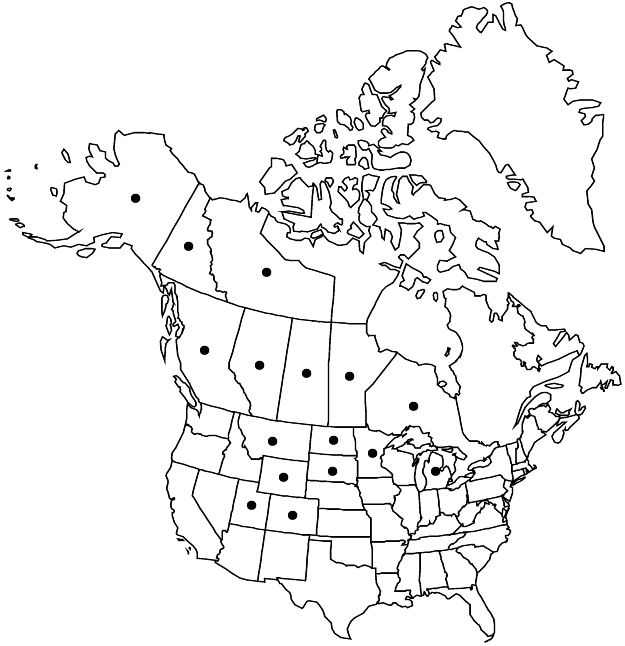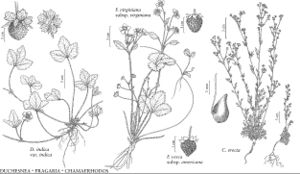Difference between revisions of "Chamaerhodos erecta"
in C. F. von Ledebour, Fl. Altaica 1: 430. 1829.
FNA>Volume Importer |
FNA>Volume Importer |
(No difference)
| |
Revision as of 23:11, 16 December 2019
Leaves: basal petiole to 30 mm; lobes of cauline leaves 5–18 × 0.2–1 mm; surfaces white-hairy, stipitate-glandular, hairs rarely antrorsely barbed. Flowers: sepals 1.8–2.5 mm; petals 1.8–2.5 × 0.5–1.1 mm. 2n = 14.
Phenology: Flowering Jun–Aug; fruiting Jul–Sep.
Habitat: Prairies, dry hilltops, knolls, outcrops, buttes, rocky and sandy soil or gravel, exposed and disturbed sites
Elevation: 300–3200 m
Distribution

Alta., B.C., Man., N.W.T., Ont., Sask., Yukon, Alaska, Colo., Mich., Minn., Mont., N.Dak., S.Dak., Utah., Wyo., Asia (Mongolia, Russian Far East, Siberia).
Discussion
No clear distinction could be made among infraspecific taxa of Chamaerhodos erecta. Purportedly distinguishing characters, for example petal length relative to sepal length, vary throughout the range of the species. Stems may be in tufts, single or multiple (one North Dakota specimen exhibited leafy tufts with ten branches from the base). Most often, specimens are single-stemmed, branching distal to the middle, and producing flat-topped inflorescences.
Selected References
None.
